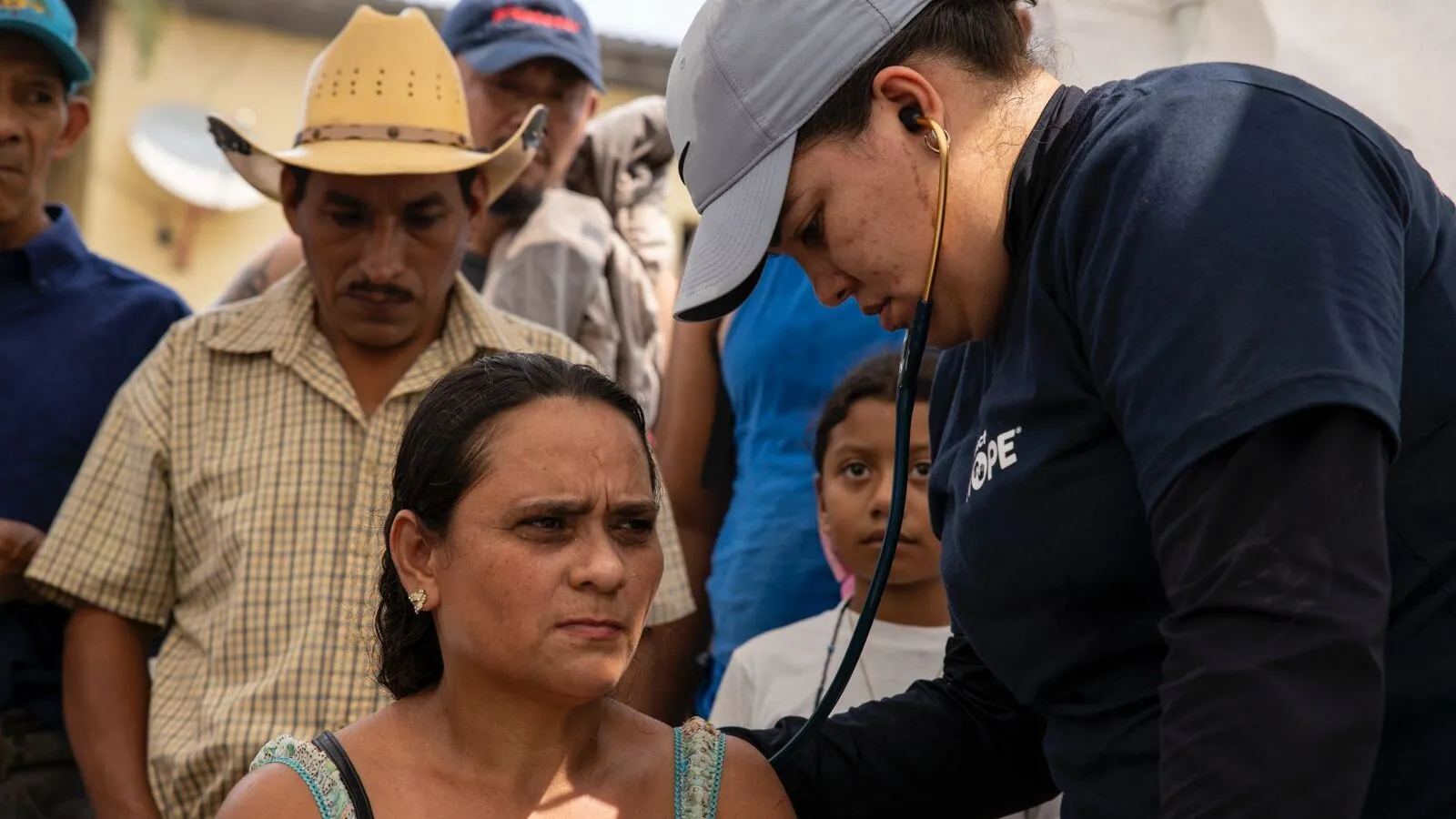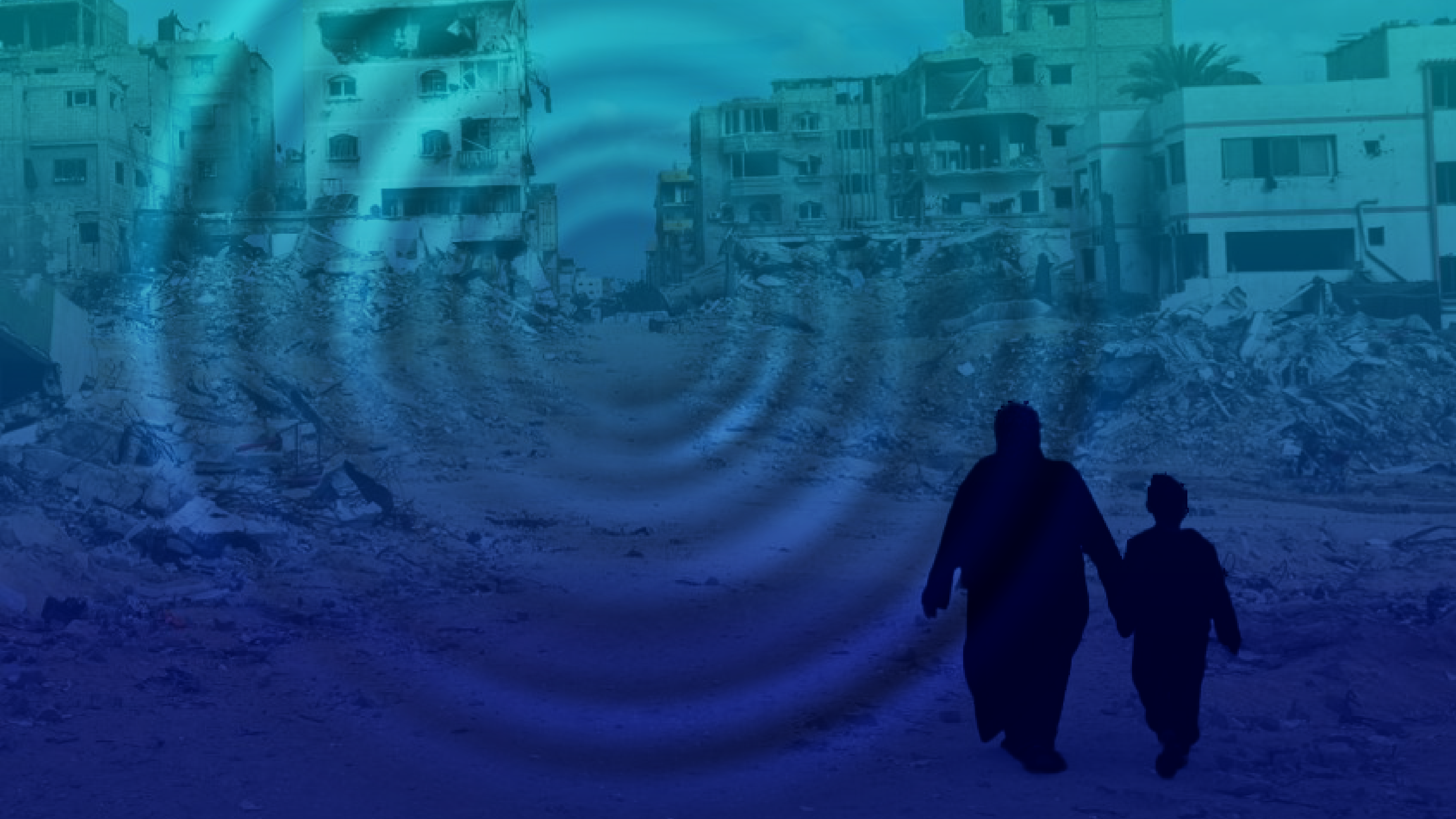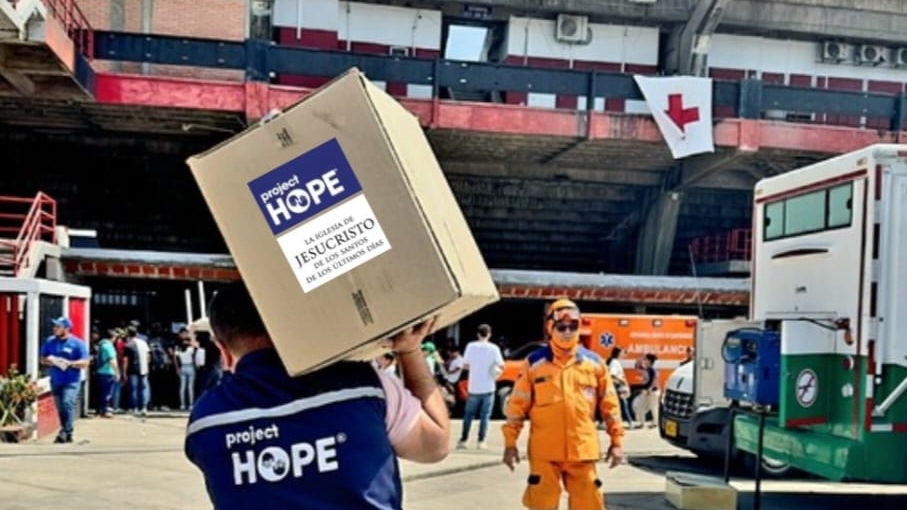News Alert: Urgent Health and Humanitarian Needs for Migrants

Washington, DC (5 June 2024) – Conflict, economic and political instability, and climate change have pushed people from around the globe to make often dangerous journeys to seek a better and safer life. While migration patterns are often unpredictable, Project HOPE is working to strengthen and build partnerships along the U.S.-Mexico border and throughout Latin America, to support migrant health service providers and create linkages to care for medically underserved communities.
“Displaced populations are becoming more diverse than ever before due to growing instability across the globe, but no matter what pathway migrants take, many arrive at our borders past the brink of exhaustion with trauma and mental health needs. We are particularly concerned about children, pregnant women, and those with disabilities that require specialized care as they are more vulnerable to the health and safety risks that come with making a journey of this nature,” said Andrea Dunne, Senior Regional Director for Project HOPE. “There is an urgent need to strengthen the capacity of health workers and shelters along common migration routes and destinations to meet health and humanitarian needs. Here in the U.S., we also want to ensure continuity of care for legally processed asylum seekers – or LPAS – by working in collaboration with partners and health facilities across the country.”
For many migrant guests, the factors for leaving their home country include violence, political instability, exacerbated poverty levels due to rising inflation, and the impacts of climate change on extreme weather, agriculture, and livelihoods. Migrants that make the journey risk violence from criminal gangs, robbery, sexual abuse, and human trafficking. Many who make the journey are unaccompanied minors. Many migrants, including children, arrive at shelters with injuries and wounds sustained during the journey, and many are dehydrated and exhausted.
Project HOPE partners with the Casa Alitas migrant shelter and the Southeastern Arizona Health Education Center (SEAHEC) in Tucson, Arizona, to provide compassionate and dignified support and health services to asylum seekers once they cross the U.S. border. We have been funding a community health worker and medical advisor and have engaged two medical volunteers to assist shelter guests with basic medical care and medication refills, and to connect them to care when they reach their final destination.
Through a partnership with SAMU First Response, Project HOPE provides critical mental health support for migrants, including technical assistance and training for shelter staff and volunteers in the greater D.C. area, covering topics like mental health and resiliency and sexual and gender-based violence. We also work to address youth mental health through game-based education and activities at shelters to address stigma, build coping skills, and provide care and support for migrant youth.
Through support from The Church of Jesus Christ of Latter-day Saints, Project HOPE has established programs in Colombia, Ecuador, and Honduras to address the health and humanitarian needs of migrants. These programs will increase access to health; water, sanitation, and hygiene (WASH); and protection services, particularly for women and children who are vulnerable to the health and safety risks associated with displacement.
Project HOPE has a long history of addressing the health needs of displaced people around the world, including providing maternal and child health care along the Colombia-Venezuela border, providing primary health services to internally displaced people in places like Ethiopia and Ukraine, and partnering with free and charitable clinics in Texas, Louisiana, Alabama, Georgia, and Florida that support marginalized communities.
Andrea Dunne and other Project HOPE humanitarian response experts are available for interviews upon request — in both English and Spanish. For more information or to schedule an interview, please contact media@ProjectHOPE.org.
###
About Project HOPE
Founded in 1958, Project HOPE is a leading global health and humanitarian organization operating in more than 25 countries around the world. We work side-by-side with local health systems to save lives and improve health. Our mission is at the epicenter of today’s greatest health challenges, including infectious and chronic diseases, disasters and health crises, maternal, neonatal and child health and the policies that impact how health care is delivered. For more information on Project HOPE and its work around the world, visit www.ProjectHOPE.org and follow us on Twitter @ProjectHOPEorg.



